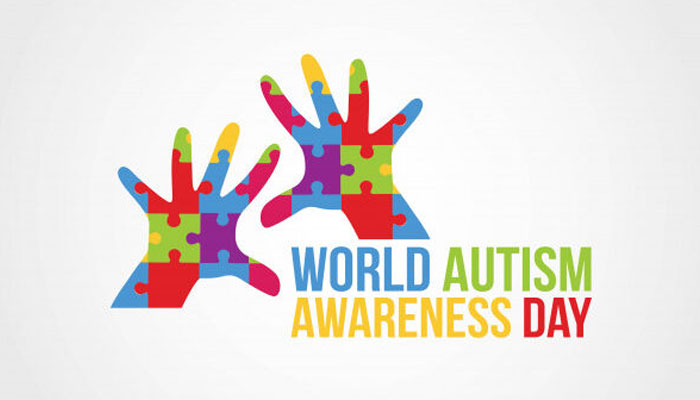Understanding the spectrum
Theme for this year’s World Autism Awareness Day is ‘Moving from Surviving to Thriving’, recognizing that, despite their challenges
April 2 was designated as World Autism Awareness Day in 2007 by the UN to promote the full realization of human rights and fundamental freedoms for people with autism on an equal basis with others. The theme for this year’s World Autism Awareness Day is ‘Moving from Surviving to Thriving’, recognizing that, despite their challenges, those with autism can become valuable, contributing members of society. Take the animal behaviourist Mary Temple Grandin for example, who revolutionized the cattle-management industry by developing corrals that lower the stress and improve the quality of life of cattle. Rather than holding her back, being born with autism fuelled her success. Stories like hers have also helped transform our understanding of what it means to live with autism, with the UN seeking to move beyond the emphasis on awareness and towards acceptance and appreciation of autistic people and their contributions to the world. Sadly, here in Pakistan, awareness remains a challenge in much of the country – acceptance, let alone appreciation, might be an even tougher challenge.
The Pakistan Autism Society estimates that there are around 350,000 children with Autism Spectrum Disorder (ASD) in the country. The real figure may well be higher given that official recording is not one of the country’s strong suits and underreporting due to the stigma people with mental health difficulties are often still viewed with in Pakistan. Some experts say that, while the country has made significant progress on child mental health over the past decade or so, there are still less than ten child psychiatrists in a country that has an estimated 2.5 million children who need mental health support. Treatment options for those with ASD, reflecting general trends in our healthcare system, are mostly concentrated in big urban centres. And they are not financially accessible, to say the least. According to some reports, people from more rural districts have, in some cases, quit treatment for their children mid-way due to the costs of travel and treatment combined being too high. Some parents whose children have ASD have been reported to take them to shrines and Pirs for ‘healing’, while others simply refuse to admit that their child might need help.
A lack of awareness and stigma have helped lead to a situation where 90 per cent of Pakistanis with common mental health disorders are left untreated, costing the country an estimated Rs617 billion as of 2020. How many Temple Grandins has Pakistan missed out on? When it comes to mental health and disabilities, there is very rarely any standardized treatment and ASD is no different. The spectrum is broad and each person requires highly customized care often refined over time. What this means is that along with more early diagnoses and awareness and less stigma, care must be consistently available and widespread.
-
 What You Need To Know About Ischemic Stroke
What You Need To Know About Ischemic Stroke -
 Shocking Reason Behind Type 2 Diabetes Revealed By Scientists
Shocking Reason Behind Type 2 Diabetes Revealed By Scientists -
 SpaceX Cleared For NASA Crew-12 Launch After Falcon 9 Review
SpaceX Cleared For NASA Crew-12 Launch After Falcon 9 Review -
 Meghan Markle Gives Old Hollywood Vibes In New Photos At Glitzy Event
Meghan Markle Gives Old Hollywood Vibes In New Photos At Glitzy Event -
 Simple 'finger Test' Unveils Lung Cancer Diagnosis
Simple 'finger Test' Unveils Lung Cancer Diagnosis -
 Groundbreaking Treatment For Sepsis Emerges In New Study
Groundbreaking Treatment For Sepsis Emerges In New Study -
 Roblox Blocked In Egypt Sparks Debate Over Child Safety And Digital Access
Roblox Blocked In Egypt Sparks Debate Over Child Safety And Digital Access -
 Savannah Guthrie Addresses Ransom Demands Made By Her Mother Nancy's Kidnappers
Savannah Guthrie Addresses Ransom Demands Made By Her Mother Nancy's Kidnappers -
 OpenAI Reportedly Working On AI-powered Earbuds As First Hardware Product
OpenAI Reportedly Working On AI-powered Earbuds As First Hardware Product -
 Andrew, Sarah Ferguson Refuse King Charles Request: 'Raising Eyebrows Inside Palace'
Andrew, Sarah Ferguson Refuse King Charles Request: 'Raising Eyebrows Inside Palace' -
 Adam Sandler Reveals How Tom Cruise Introduced Him To Paul Thomas Anderson
Adam Sandler Reveals How Tom Cruise Introduced Him To Paul Thomas Anderson -
 Washington Post CEO William Lewis Resigns After Sweeping Layoffs
Washington Post CEO William Lewis Resigns After Sweeping Layoffs -
 North Korea To Hold 9th Workers’ Party Congress In Late February
North Korea To Hold 9th Workers’ Party Congress In Late February -
 All You Need To Know Guide To Rosacea
All You Need To Know Guide To Rosacea -
 Princess Diana's Brother 'handed Over' Althorp House To Marion And Her Family
Princess Diana's Brother 'handed Over' Althorp House To Marion And Her Family -
 Trump Mobile T1 Phone Resurfaces With New Specs, Higher Price
Trump Mobile T1 Phone Resurfaces With New Specs, Higher Price




